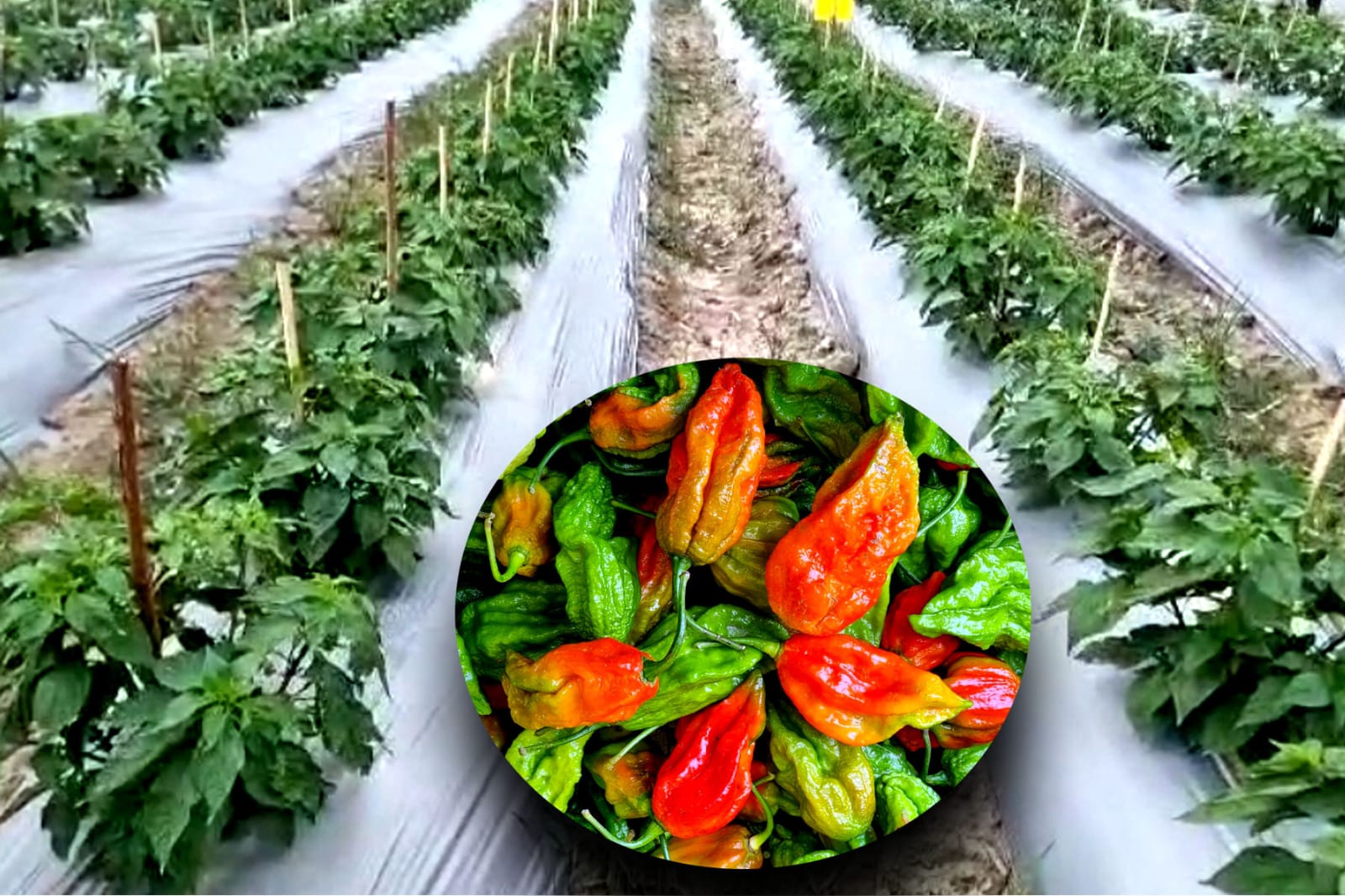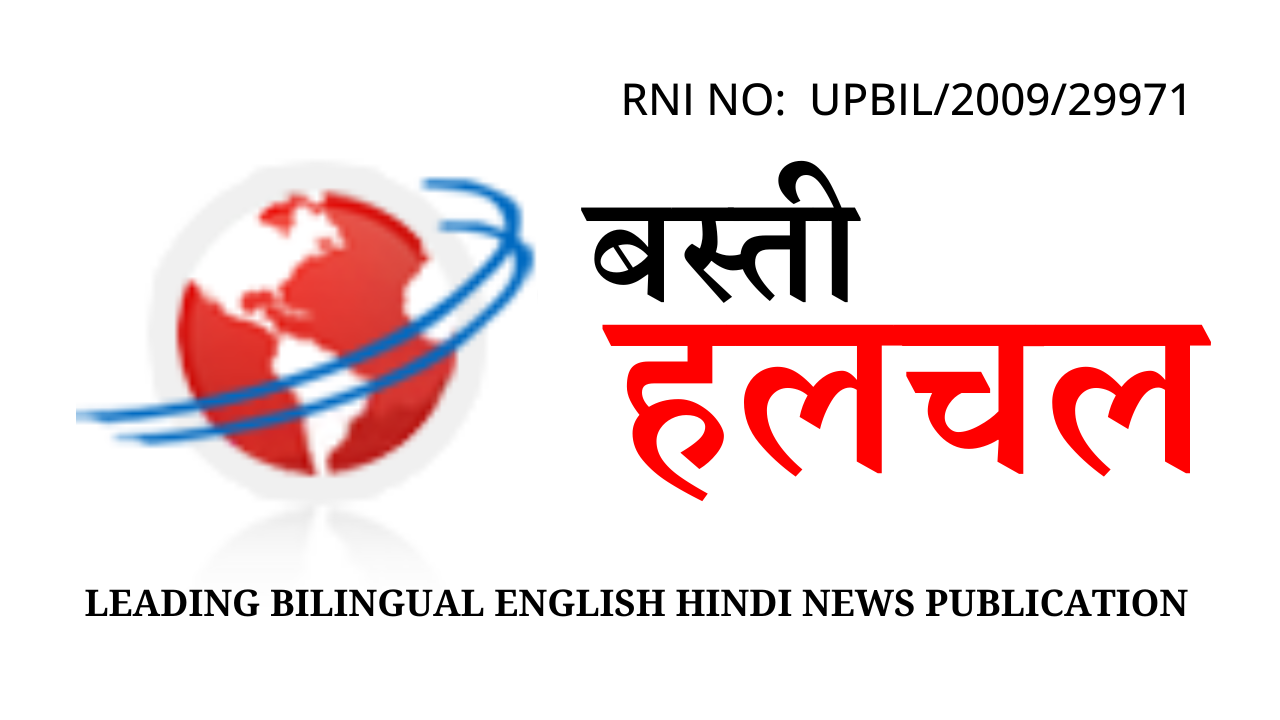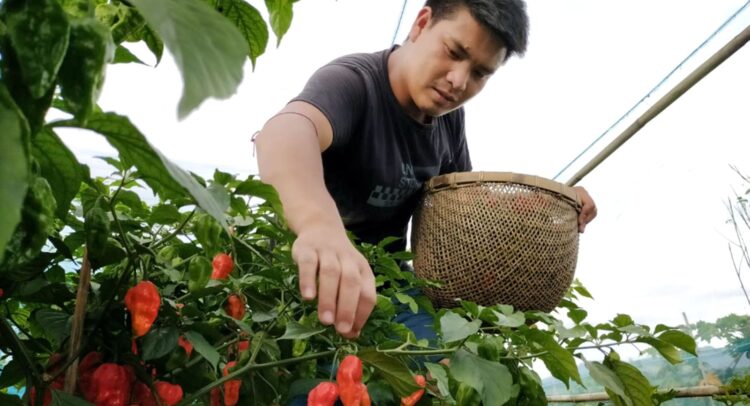Asem Bhakta, Special Correspondent North East
Imphal: Samjetsabam Rabi, a determined and visionary farmer from Phayeng, has carved a remarkable niche for himself in the agricultural world with his organic U-morok (King Chili). His journey from an ambitious individual battling discouragement to becoming a respected name in the industry is an inspiring testament to hard work, innovation, and resilience. Today, his U-morok is known by the brand name Phayeng among people and is in high demand across the region and even exported to cities like Delhi, Mumbai, and Uttar Pradesh.

Samjetsabam Rabi’s farming career began in 2014 when he made the bold decision to venture into U-morok cultivation. At the time, the people of Phayeng were primarily involved in piggery, an industry linked to the production of alcohol, a business Samjetsabam Rabi was not inclined to pursue. Initially, he faced the challenge of convincing others of the value of farming, as U-morok was not yet a popular crop in the area. “When I decided to start Umorok farming, many people discouraged me and even made fun of my decision. But I believed in its potential,” he shared. Between 2014 and 2016, Samjetsabam Rabi focused on seed selection and researching the best practices for U-morok cultivation. He began implementing what he had learned from 2017 onwards, starting small but with a clear vision for the future. His early years were not without struggle, but by 2018, the fruits of his labor began to show. Samjetsabam Rabi planted 500 U-morok plants, and by 2019-2020, his profits had increased from Rs. 5 lakh to Rs. 10 lakh. “I realized that the demand for U-morok was growing, and I had made the right choice. The more I planted, the more I profited,” he recalls. With success, Samjetsabam Rabi expanded his farm and began using machinery, such as tractors, to increase productivity. Not only did this help him scale up, but it also created employment opportunities for others in the community. The expansion was a major milestone, and his business was booming. However, as with any journey, Samjetsabam Rabi faced setbacks. In 2023, the ongoing conflict affected sales and farming operations, and in 2024, a hailstorm struck, further challenging his progress. Despite these setbacks, he persevered. “There were challenges in 2023 due to the crisis, and sales were impacted. But I didn’t give up. I continued to work, and even though farming was affected, I managed to sustain my business,” he explained. In 2024, a hailstorm hit, further impacting his crops. Despite these challenges, Rabi still managed to turn a profit. “Farming is unpredictable, but my commitment to quality and organic practices has kept my business afloat. Even with all the setbacks, my farm has continued to thrive,” he said. One of the key factors behind his success is his commitment to organic farming. Samjetsabam Rabi’s U-morok is known for its dark green color, which is more in demand because of its lighter weight. “Organic farming has made all the difference. I use methods like soil preparation, mulching, drip irrigation, and organic fertilizers like neem powder and vermicompost. These techniques not only ensure healthier crops but also contribute to better soil quality,” he explains. In terms of costs, Samjetsabam Rabi spends around Rs. 20,000 for 1,000 plants in a traditional field, which can yield up to Rs. 1 lakh in profit. However, when he grows the U-morok in a polyhouse, the cost triples to Rs. 1.5 lakh, but the yield and profits double. Inside the polyhouse, each plant produces around 2 kg of U-morok, compared to just 1 kg per plant in the open field. “The investment in the polyhouse pays off. The U-morok grown inside has a better yield, and because it is organic, it has a longer shelf life. It can be stored at room temperature for up to a month,” he says with pride. Through his hard work and organic farming techniques, Samjetsabam Rabi’s U-morok has gained recognition beyond Phayeng. People know his brand of chili as Phayeng and is now synonymous with high-quality, organic U-morok. His products are sold in Imphal markets and have found their way to customers in cities like Delhi, Mumbai, and Uttar Pradesh. “The demand for my U-morok has grown beyond what I could have imagined. It’s a brand now, and that’s something I’m proud of,” he shares. Samjetsabam Rabi’s commitment to organic farming has inspired many others in his community. Since 2023, he has been associated with MOMA (Manipur Organic Mission Agency),Under the supervision of The Garden Care, a service provider under MOVCDNER, Government of India.and this association has encouraged around 50 other farmers in Phayeng to transition to organic U-morok farming. “We share knowledge and improve our farming practices. We are a community of organic farmers, and the impact is being felt in the region,” he says. Today, Samjetsabam Rabi’s success story is a beacon of hope for aspiring farmers across the state. He has not only proven that organic farming is a sustainable and profitable venture but has also played a key role in reviving interest in U-morok cultivation in the region


